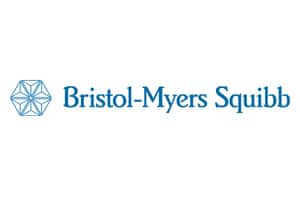
Bristol-Myers Squibb has scored a mid-stage success with an oral drug that could challenge a new generation of injectable biologics for psoriasis.
The phase II trial of tyrosine kinase 2 (Tyk2) inhibitor BMS-986165 showed a level of efficacy that was greater than other oral therapies for people with the skin disorder and “competitive with many biologic therapies approved in the setting,” according to analyst Matt Phipps of William Blair.
The results – published in the New England Journal of Medicine – showed that BMS-986165 was more effective than placebo at achieving skin clearance in moderate-to-severe psoriasis, achieving 75% or greater improvement (PASI 75) at week 12 in 75% of patients overall, and 81% of those previously treated with a biologic drug.
BMS already has a phase III programme called POETYK underway in patients with moderate to severe plaque psoriasis, and that includes a comparative arm against Celgene’s oral therapy Otezla (apremilast) which brought in $1.3bn in sales last year in psoriasis and psoriatic arthritis.
If the mid-stage efficacy of the Tyk2 inhibitor can be replicated in phase III, that “would create a compelling novel option for psoriasis patients and have blockbuster potential,” said Phipps.
He also pointed to what appeared to be a “very benign safety profile” for BMS-986165 that seems to avoid the clot-related side effects linked to some members of the JAK inhibitor class – which act via the same pathway but haven’t been approved for psoriasis to date. Pfizer’s Xeljanz (tofacitinib) has been approved for psoriatic arthritis but was turned down by the FDA for psoriasis in 2015.
BMS’ drug is thought to act as an upstream regulator of cytokines like interleukin-23, IL-12 and interferon-alpha, and there is a rich heritage of biologics targeting those pathways, including Johnson & Johnson’s Stelara (ustekinumab) and follow-up Tremfya (guselkumab), Sun Pharma’s Ilumya (tildrakizumab) and AbbVie’s recently-filed risankizumab.
If approved, BMS-986165’s oral dosing could give it a leg-up over these injectable drugs but it will still need to take on Otezla and generic oral agents like methotrexate, cyclosporine and steroids. Celgene’s drug started well and then trailed off for a while, but seems to have rebounded and Celgene is now predicting $1.5bn in sales this year.
It’s also not alone in its efforts to bring a Tyk2 drug to market, with Pfizer and Celgene both working on drugs in this class – and both have a stronger presence than BMS in the inflammatory disease market.
“Currently, patients with moderate to severe psoriasis have a limited number of oral therapies,” said Kim Papp of Probity Medical Research in Waterloo, Ontario, the lead author of the NEJM paper.
“Having a favourable risk-benefit profile and delivering significant skin clearance and improvements in quality of life measures, these data suggest that BMS-986165 may be a promising oral option to help patients control their psoriasis in the future.”
BMS also has phase II studies of the drug ongoing in other indications including systemic lupus erythematosus and Crohn’s disease.




